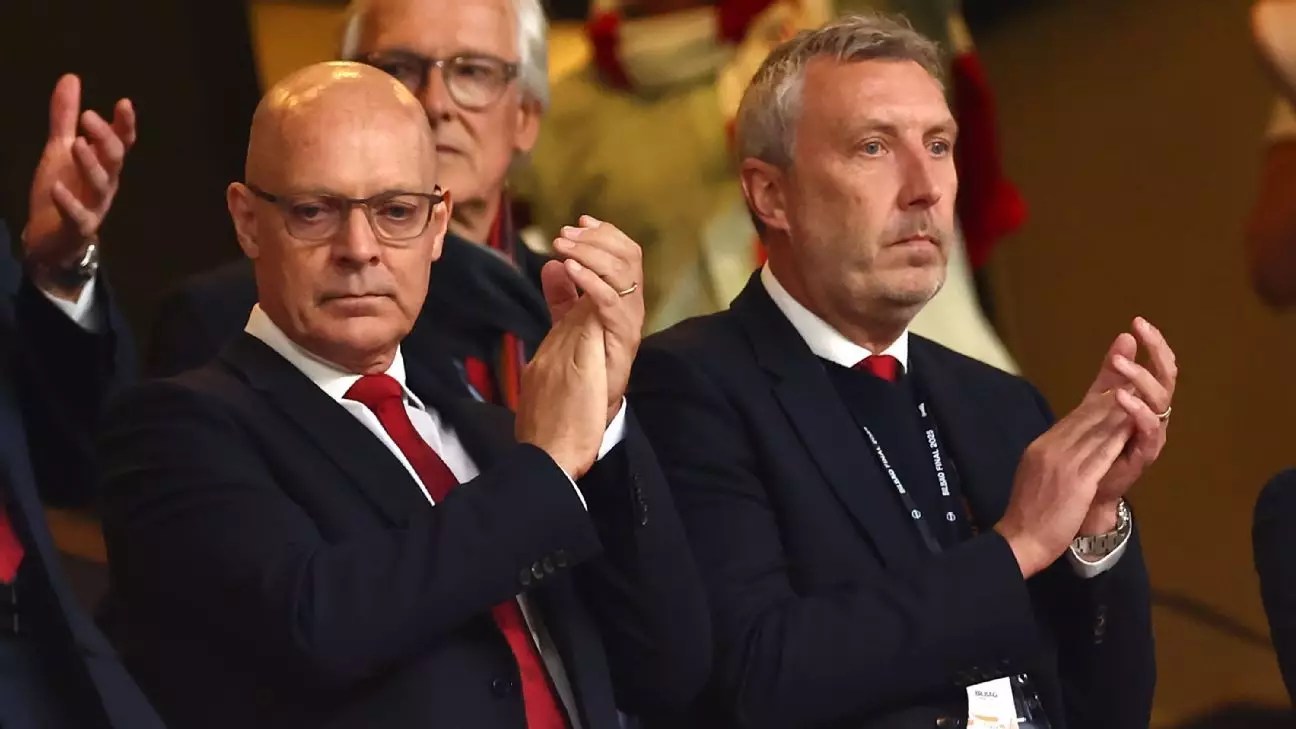Manchester United, a club steeped in football lore, finds itself at another crossroads with significant shifts in its leadership structure. The latest tweak involves the scaling down of Dave Brailsford’s involvement, a figure once pivotal in steering British cycling towards unprecedented Olympic triumphs. His transition should be viewed not merely as a personnel adjustment but as a reflection of the broader tumult the club has faced since the controversial investment by billionaire Jim Ratcliffe. The echoes of uncertainty resonate louder than ever, as the once-great team limps away from a disheartening season that saw them relegated to their worst Premier League finish yet—an alarming 15th place.
A New Era with Uncertain Outcomes
Brailsford’s reduced role comes amidst a flurry of changes that have marked Ratcliffe’s entry into the fray. With a £1.04 billion stake in Manchester United, one might expect a vibrant rejuvenation of fortunes; instead, the on-field performances have led fans and analysts alike to question whether the blueprint for success is clear or muddled. Ratcliffe’s ambitious vision for the club sought to wrest control from the Glazer family’s oft-criticized management style, but tangible results have been conspicuously absent. This devolution isn’t merely a pivot but a worrying sign of underlying discord and instability.
The Causal Chain of Events
A litany of personnel departures amplifies the contrasting narrative. Former head coach Erik ten Hag’s swift exit just months into a contract post shows a precariousness that makes one wonder if anyone is truly safe in their position. The recruitment of Dan Ashworth, who left his role at Newcastle under contentious circumstances, has additionally raised eyebrows given the timing and the expectations thrust upon him. Changes at the top level often signal a chaotic environment, but the question remains: how do these shifts manifest in the locker room?
Profiles of the New Guard
With each change, the narrative thickens. Omar Berrada, stepping in as CEO after moving from Manchester City, and Jason Wilcox, a significant addition as technical director, bring hope amidst uncertainty. Their credentials might suggest a symbiotic reset for Manchester United; however, their success hinges largely on the rapid adaptation to an ever-tightening pressure cooker of expectations. The gamble on their expertise could either be the critical factor in achieving the much-craved success or merely another disappointing chapter of mismanagement.
While Manchester United’s great history casts a long shadow, the club’s current trajectory raises substantial doubts. With Brailsford’s day-to-day involvement waning and the team struggling, one cannot help but wonder if they’re on the brink of a much-needed overhaul or if the potential for success remains deferred. The fans, knowing too well the legacy at stake, watch intently—for the heart of Manchester United is more than strategy; it’s a fervent passion fueled by the relentless pursuit of excellence.


Leave a Reply